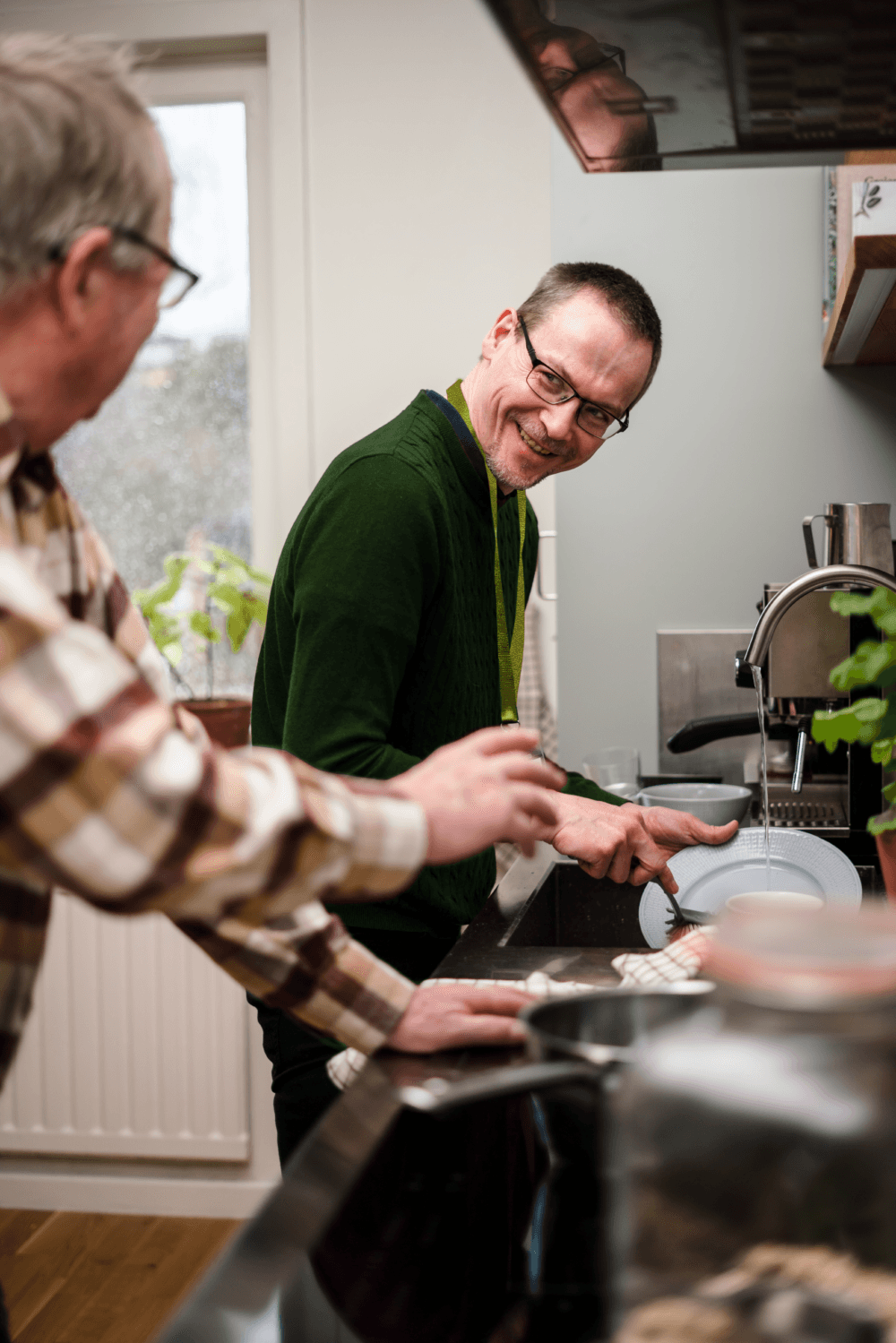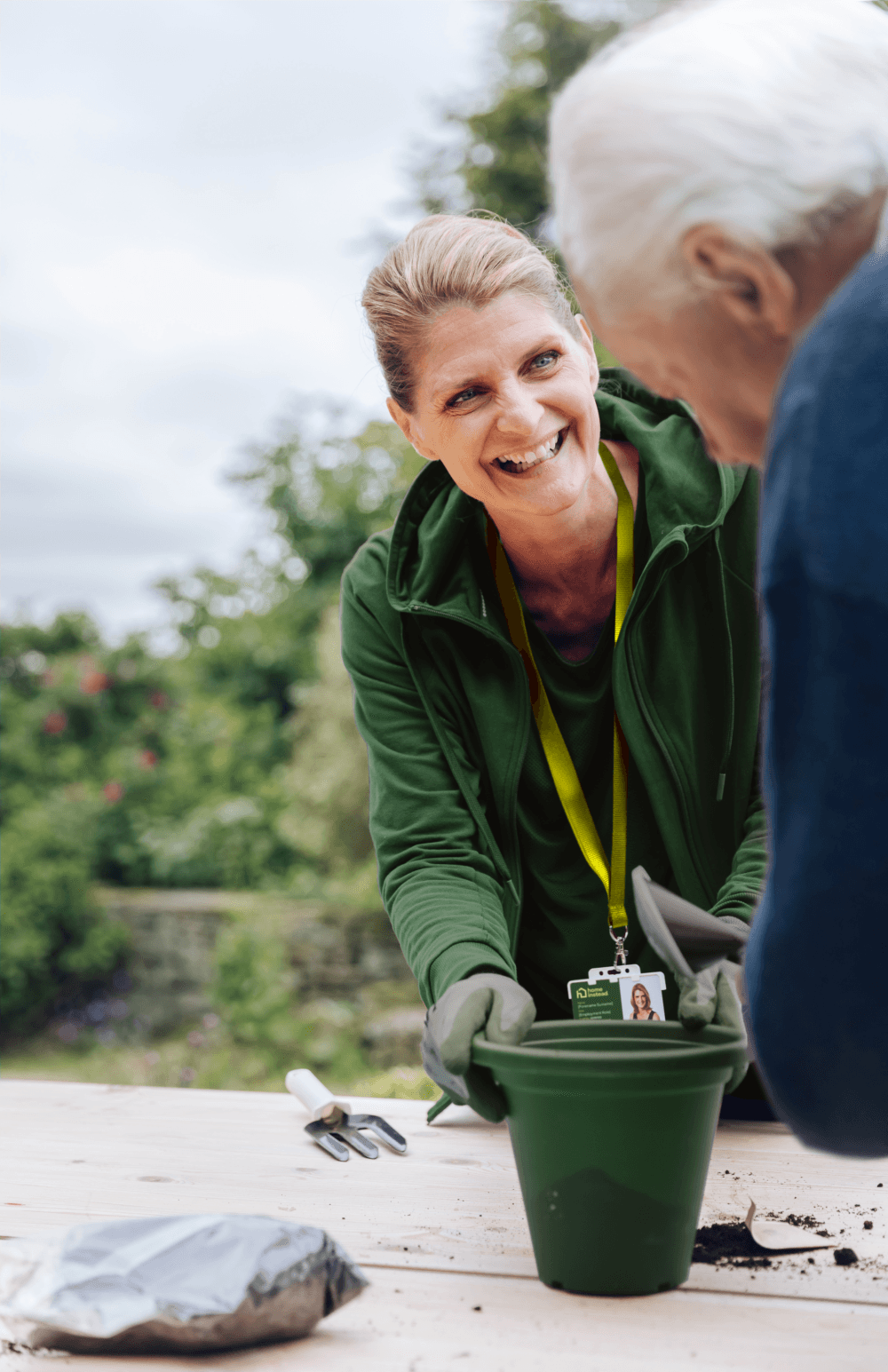Helping Elderly Loved Ones Stay Cool and Hydrated

Simple Ways to Support Summer Wellbeing at Home in the New Forest
With July bringing warmer weather to the New Forest, it’s a vital time to ask, are your elderly loved ones drinking enough? For older adults, especially those receiving home care or living with conditions like dementia or mobility challenges, staying hydrated is about more than comfort, it’s essential for health and safety. Dehydration can develop quickly, often without obvious signs, but the good news is it’s preventable. From enjoying water-rich foods like cucumber and strawberries to avoiding drinks that may reduce hydration, such as caffeine or alcohol, there are many simple ways to support hydration during the summer months. At Home Instead New Forest, we’re here to help families keep their loved ones well with practical, compassionate care.
In this blog, we share how ageing affects hydration, what to look out for during warmer weather, and which small daily habits, like regular drinks and water-rich meals, can make all the difference for those living at home.

Why Older Adults Are More at Risk
Ageing brings changes that make dehydration more likely. Some older people may not feel thirsty, even when they need fluids. Others may avoid drinking to limit toilet trips, especially if mobility or continence is a concern. Certain medications, like diuretics or drugs used for heart and mental health conditions, can also increase fluid loss or make temperature regulation harder.
For those with memory issues, including dementia, recognising thirst or remembering to drink can be challenging. That’s where gentle encouragement and well-timed support can make a genuine difference.
Dehydration in older people can lead to a range of health challenges, such as tiredness, dizziness, or confusion, urinary tract infections, or even hospital admissions. The NHS has reported surges in heat-related emergencies, many of which could be prevented with early action.

Warning Signs of Dehydration in Older Adults
It’s important to know what to look out for, particularly during periods of prolonged heat. Watch for:
- Dry mouth or cracked lips
- Sunken eyes or skin that doesn’t bounce back when gently pinched
- Dark or infrequent urine
- Confusion, irritability, or increased tiredness
- Dizziness, unsteadiness, or more frequent falls
- A noticeable drop in alertness or responsiveness
If you notice any of these signs, encourage fluid intake right away. For serious symptoms, like rapid breathing, high temperature without sweating, or unconsciousness, Call 999 for urgent help if needed.

How to Help Older Adults Stay Hydrated in Hot Weather
1. Offer Drinks Regularly, Not Just When Thirsty
Older adults may not feel thirsty even when they’re dehydrated. Offer small, manageable drinks regularly throughout the day. Keep drinks nearby and easy to access, especially if someone has mobility issues. Serve drinks during mealtimes and at key routines, such as medication times or social activities.
2. Make Drinking More Enjoyable
Plain water isn’t the only option. Herbal teas (decaffeinated), diluted squash, milk, or naturally flavoured waters can encourage drinking. Some people prefer warm drinks, even in hot weather, what matters is regular fluid intake.
3. Avoid Dehydrating Drinks
Certain drinks can make dehydration worse. Limit caffeine (found in tea, coffee, energy drinks) and avoid alcohol altogether during hot weather. These drinks act as diuretics and increase fluid loss.
4. Eat Water-Rich Foods
Some people may struggle to drink large amounts but happily enjoy food-based hydration. Consider:
- Cucumber
- Melon
- Strawberries
- Soup (served lukewarm)
- Jelly
- Ice lollies
- Yoghurt
- Courgettes or cooked spinach
Foods like these contribute to daily fluid intake while providing comfort and enjoyment.
5. Create a Cool, Calm Environment
Encourage loved ones to stay indoors during peak heat hours (11am–3pm). Use fans, keep curtains closed, and apply damp cloths to skin or neck for cooling. Offer a cool footbath or use a plant mister filled with cold water to lightly mist the skin.

Practical Ideas for At-Home Hydration Support
Staying hydrated isn’t always as simple as offering water. Here are practical ways to help:
- Use straws or handled cups: These can make sipping easier for those with reduced strength or coordination.
- Use gentle prompts: “Would you like a drink with your biscuit?” or “Let’s have a cool drink while we sit down together” are more effective than simply asking if they’re thirsty.
- Keep drinks visible: Clear jugs, coloured cups, and drinks within arm’s reach are more likely to be used.
- Include hydration in daily routines: Pairing drinks with TV programmes, meals, or regular activities creates helpful patterns.
At Home Instead New Forest, our care professionals offer regular prompts and tailored hydration plans as part of home visits or live-in care services.

Special Support for Swallowing Difficulties
For individuals living with dysphagia (difficulty swallowing), hydration requires extra care and thoughtful planning. Thickened fluids, usually prescribed by a speech and language therapist, can help reduce risk, but the texture or taste may sometimes discourage regular drinking.
At Home Instead New Forest, our Care Professionals are trained to support individuals with swallowing difficulties in a safe and compassionate way. Whether it’s offering modified fluids, using familiar cups to encourage drinking, or incorporating favourite flavours into approved drinks, we tailor our approach to each person’s needs. We also work closely with families and healthcare professionals to ensure any hydration plan follows clinical guidance and feels natural for the person receiving care.
If you’re caring for someone with dysphagia at home, your GP or specialist team can advise on suitable options. You can also explore expert guidance and resources from the Royal College of Speech and Language Therapists here: Dysphagia Dining – RCSLT

The Role of Clean, Natural Water
New Forest Water, naturally filtered through chalk and gravel in the National Park, provides a mineral-rich option free from added sugars or preservatives. It’s especially suitable for people with sensitive stomachs or those avoiding flavoured drinks.
Containing essential minerals like calcium, magnesium, and potassium, it supports hydration and helps regulate nerve and muscle function, key benefits for older adults.

Real-World Hydration Ideas From Industry Professionals
Most care providers, including Home Instead New Forest have made hydration part of everyday culture, with ideas that you can adopt at home:
- Hydration stations with jugs of water and fresh fruit
- Ice lolly trays using fruit juice or squash
- Mocktails and themed drinks nights to make fluid intake fun
- Jelly sweets and fruit cubes as quick, easy hydration boosts
- Flavour rotation to prevent drink fatigue
Whether in a care setting or at home, making drinks feel like a treat rather than a chore can increase intake and improve wellbeing.

Best Hydrating Foods for Older Adults
Try to include these in weekly meals or snacks:
| Hydrating Food | Water Content (%) |
| Cucumber | 96% |
| Watermelon | 92% |
| Strawberries | 91% |
| Courgette | 94% |
| Lettuce | 96% |
| Tomatoes | 95% |
| Peaches | 89% |
| Yoghurt | 88% |
| Soup (clear broth) | 92% |

Foods and Drinks That Can Contribute to Dehydration
Be aware of the following:
- Caffeinated drinks – Increase fluid loss.
- Alcohol – Should be avoided entirely in hot weather.
- High-protein diets – May increase water requirements.
- Salty snacks (crisps, cured meats) – Contribute to dehydration if not balanced with fluid intake.
If someone is enjoying these in small amounts, ensure they’re paired with water or hydrating foods.

A Local and Personal Approach to Hydration
Here in the New Forest, we’re fortunate to have access to clean, mineral-rich water and a supportive care network. At Home Instead New Forest, we provide tailored hydration support as part of our home care visits, whether that’s preparing fresh drinks, assisting with fluid tracking, or offering companionship to encourage drinking through conversation and shared routines.
We also understand that every individual is different. What works for one person may not suit another. That’s why our care team works closely with families to create hydration routines that feel natural and achievable.

If You’re Worried About Someone
Don’t wait until symptoms appear. A phone call, visit, or conversation about fluids could make a meaningful difference. If you need extra support, we’re here to help.
- Speak to Home Instead New Forest about care support: homeinstead.co.uk/New-Forest
- Consult your GP or pharmacist about medications or concerns
- Call NHS 111 for non-emergency advice
- Dial 999 for urgent medical help

Final Thoughts
Hydration may seem like a simple act, but for many older adults, staying hydrated can be challenging without thoughtful support. Whether you’re preparing a jug of squash, serving cucumber with lunch, or offering a chat and a drink, these small steps add up.
At Home Instead New Forest, we believe in compassionate, practical care that keeps people comfortable and confident in their own homes. Supporting hydration is just one of the many ways we help make that happen.
Stay cool. Stay safe. And keep the kettle, or the water jug, at the ready.

Areas We Serve
Lymington, Brockenhurst, New Milton, Totton, Lyndhurst & the surrounding areas.
BH23 8, BH24 4, BH25 5, BH25 6, BH25 7, SO40 2, SO40 3, SO40 4, SO40 7, SO40 8, SO40 9, SO41 0, SO41 3, SO41 5, SO41 6, SO41 8, SO41 9, SO42 7, SO43 7, SO45 1, SO45 2, SO45 3, SO45 4, SO45 5, SO45 6
5 Rashley Mews, High St, Lymington SO41 9AR, UK
01590 637 250